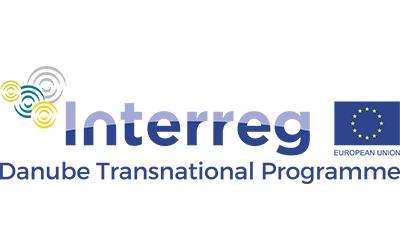
Interreg Danube Transnational Programme
- www.interreg-danube.eu
- Austria whole country
- More details about Austria
- Bosnia and Herzegovina whole country
- More details about Bosnia and Herzegovina
- Bulgaria whole country
- More details about Bulgaria
- Croatia whole country
- More details about Croatia
- Czech Republic whole country
- More details about Czech Republic
- Hungary whole country
- More details about Hungary
- Moldova whole country
- More details about Moldova
- Montenegro whole country
- More details about Montenegro
- Romania whole country
- More details about Romania
- Serbia whole country
- More details about Serbia
- Slovakia whole country
- More details about Slovakia
- Slovenia whole country
- More details about Slovenia
-
- Germany nuts 3 level
- Aichach-Friedberg
- Alb-Donau-Kreis
- Altötting
- Amberg, Kreisfreie Stadt
- Amberg-Sulzbach
- Ansbach, Kreisfreie Stadt
- Ansbach, Landkreis
- Aschaffenburg, Kreisfreie Stadt
- Aschaffenburg, Landkreis
- Augsburg, Kreisfreie Stadt
- Augsburg, Landkreis
- Bad Kissingen
- Bad Tölz-Wolfratshausen
- Baden-Baden, Stadtkreis
- Bamberg, Kreisfreie Stadt
- Bamberg, Landkreis
- Bayreuth, Kreisfreie Stadt
- Bayreuth, Landkreis
- Berchtesgadener Land
- Biberach
- Bodenseekreis
- Breisgau-Hochschwarzwald
- Böblingen
- Calw
- Cham
- Coburg, Kreisfreie Stadt
- Coburg, Landkreis
- Dachau
- Deggendorf
- Dillingen a.d. Donau
- Dingolfing-Landau
- Donau-Ries
- Ebersberg
- Eichstätt
- Emmendingen
- Enzkreis
- Erding
- Erlangen, Kreisfreie Stadt
- Erlangen-Höchstadt
- Esslingen
- Forchheim
- Freiburg im Breisgau, Stadtkreis
- Freising
- Freudenstadt
- Freyung-Grafenau
- Fürstenfeldbruck
- Fürth, Kreisfreie Stadt
- Fürth, Landkreis
- Garmisch-Partenkirchen
- Göppingen
- Günzburg
- Haßberge
- Heidelberg, Stadtkreis
- Heidenheim
- Heilbronn, Landkreis
- Heilbronn, Stadtkreis
- Hof, Kreisfreie Stadt
- Hof, Landkreis
- Hohenlohekreis
- Ingolstadt, Kreisfreie Stadt
- Karlsruhe, Landkreis
- Karlsruhe, Stadtkreis
- Kaufbeuren, Kreisfreie Stadt
- Kelheim
- Kempten (Allgäu), Kreisfreie Stadt
- Kitzingen
- Konstanz
- Kronach
- Kulmbach
- Landsberg am Lech
- Landshut, Kreisfreie Stadt
- Landshut, Landkreis
- Lichtenfels
- Lindau (Bodensee)
- Ludwigsburg
- Lörrach
- Main-Spessart
- Main-Tauber-Kreis
- Mannheim, Stadtkreis
- Memmingen, Kreisfreie Stadt
- Miesbach
- Miltenberg
- Mühldorf a. Inn
- München, Kreisfreie Stadt
- München, Landkreis
- Neckar-Odenwald-Kreis
- Neu-Ulm
- Neuburg-Schrobenhausen
- Neumarkt i. d. OPf.
- Neustadt a. d. Aisch-Bad Windsheim
- Neustadt a. d. Waldnaab
- Nürnberg, Kreisfreie Stadt
- Nürnberger Land
- Oberallgäu
- Ortenaukreis
- Ostalbkreis
- Ostallgäu
- Passau, Kreisfreie Stadt
- Passau, Landkreis
- Pfaffenhofen a. d. Ilm
- Pforzheim, Stadtkreis
- Rastatt
- Ravensburg
- Regen
- Regensburg, Kreisfreie Stadt
- Regensburg, Landkreis
- Rems-Murr-Kreis
- Reutlingen
- Rhein-Neckar-Kreis
- Rhön-Grabfeld
- Rosenheim, Kreisfreie Stadt
- Rosenheim, Landkreis
- Roth
- Rottal-Inn
- Rottweil
- Schwabach, Kreisfreie Stadt
- Schwandorf
- Schwarzwald-Baar-Kreis
- Schweinfurt, Kreisfreie Stadt
- Schweinfurt, Landkreis
- Schwäbisch Hall
- Sigmaringen
- Starnberg
- Straubing, Kreisfreie Stadt
- Straubing-Bogen
- Stuttgart, Stadtkreis
- Tirschenreuth
- Traunstein
- Tuttlingen
- Tübingen, Landkreis
- Ulm, Stadtkreis
- Unterallgäu
- Waldshut
- Weiden i. d. Opf, Kreisfreie Stadt
- Weilheim-Schongau
- Weißenburg-Gunzenhausen
- Wunsiedel i. Fichtelgebirge
- Würzburg, Kreisfreie Stadt
- Würzburg, Landkreis
- Zollernalbkreis
- More details about Germany
- Ukraine nuts 3 level
- Odessa Oblast
- Chernivtsi Oblast
- Ivano-Frankivsk Oblast
- Zakarpattia Oblast
- More details about Ukraine
- Germany nuts 3 level
Description
The Danube Transnational Programme is one of the programmnes of the European Territorial Cooperation objective, better known by Interreg, funded by the European Union (one of the goals of European Union cohesion policy).
EU Cooperation programmes are primarily designed for further territorial integration through enhanced cooperation in specific policy fields. The Danube Transnational Programme (DTP) promotes economic, social and territorial cohesion in the Danube Region. In order to achieve a higher degree of territorial integration of the very heterogeneous Danube region, the transnational cooperation programme acts as a policy driver and pioneer to tackle common challenges and needs in specific policy fields where transnational cooperation is expected to deliver tangible results.
It comprises 14 countries (Austria, Bulgaria, Croatia, Czech Republic, Hungary, Germany – Baden-Württemberg and Bavaria-, Romania, Slovakia, Slovenia, Bosnia and Herzegovina, Moldova, Montenegro, Serbia and Ukraine – partly). The variety of natural environment, the socio-economic differences and cultural diversity of the various parts of the area may be perceived as major challenges but actually represent important opportunities and unexploited potential. Considering its geographical coverage, this highly complex programme provides a political dimension to transnational cooperation which is unique in Europe, successfully facing challenges such as ensuring good mechanisms to contract partners who receive funding from different EU instruments.
Geographically, the Danube Transnational Programme area overlaps with the territory addressed by the EU Strategy for the Danube Region (EUSDR) and comprising also the Danube river basin. Strong complementarities with the broader EU Strategy for the Danube Region (EUSDR) are sought.
The Danube Transnational Programme focuses on four thematic priorities and opens calls for proposals related to them:
1. Innovative and socially responsible Danube Region (foster eco-innovation, knowledge transfer, cluster policy, social innovation and skilled entrepreneurship including technological and non-technological innovation aspects)
2. Environment and Culture responsible Danube Region (preserve and manage the diversity of natural and cultural assets, maintain major ecological corridors along river systems, environmental risk prevention and management)
3. Better connected Danube Region (improve regional connectivity to the TEN-T network, environmentally-friendly transport systems, regional energy planning and –coordination)
4. Well governed Danube Region (strengthen multilevel- and transnational governance in areas with major societal challenges, more effective governance of the EUSDR and complex transnational project development)
The Danube Transnational Programme finances projects for the development and practical implementation of policy frameworks, tools and services and concrete small-scale pilot investments. Target groups which can apply for funding are regional and local authorities, development agencies, universities and research institutes, chambers of commerce, innovation centers and other relevant actors in the field of innovation, economic development, environment, transport, energy and institutional capacity as well as stakeholders and governance of the EUSDR.
The implementation of the programme is coordinated by joint structures (Managing Authority, hereinafter MA and Joint Secretariat, hereinafter JS) set up in Budapest, Hungary. The Joint Secretariat (JS) is in charge of the technical implementation of the Programme, including the communication activities. It supports the Managing Authority in programme coordination and implementation.
BUDGET
The total programme budget is 274 578 077 euros, including the EU support (231 924 597,00 €) and the national counterpart (42 653 480,00 €).
The EU support comes from three different funds:
- European Regional Development Fund (ERDF) (202 095 405,00 €)
- Instrument for Pre-Accession Assistance II (IPA II) (19 829 192,00 €)
- European Neighbourhood Instrument (ENI) (10 000 000,00 €)
Selected projects are financed up to 85% of their costs.
Attachments
Contacts
Eloy Gomez Giron
- +36 1 795 9193
- Postal address: József Nádor Tér 2-4
1051 Budapest
Hungary
Office address: Honvéd utca 13-15
1055 Budapest
Hungary
ÖROK - Austrian Conference on Spatial Planning
- www.oerok.gv.at
Get the up-to-date contact details on interreg-danube.eu at:
interreg-danube.eu/contacts/national-coordination-and-contact-points#austria
Directorate for European Integration
- Get the up-to-date contact details on interreg-danube.eu at:
interreg-danube.eu/contacts/national-coordination-and-contact-points#bosnia-and-herzegovina
Ministry of Regional Development & Public Works
- +359 2 940 5596
- Get the up-to-date contact details on interreg-danube.eu at:
interreg-danube.eu/contacts/national-coordination-and-contact-points#bulgaria
Ministry of Regional Development & EU funds
- Get the up-to-date contact details on interreg-danube.eu at:
interreg-danube.eu/contacts/national-coordination-and-contact-points#croatia
Ministry for Regional Develpment
- Get the up-to-date contact details on interreg-danube.eu at:
interreg-danube.eu/contacts/national-coordination-and-contact-points#czech-republic
Ministry for Economic Affairs, Labour and Housing Baden-Württemberg
- Get the up-to-date contact details on interreg-danube.eu at:
interreg-danube.eu/contacts/national-coordination-and-contact-points#germany
Prime Minister's Office
- Get the up-to-date contact details on interreg-danube.eu at:
interreg-danube.eu/contacts/national-coordination-and-contact-points#hungary
Office for External Assistance Programs Management
- Get the up-to-date contact details on interreg-danube.eu at:
interreg-danube.eu/contacts/national-coordination-and-contact-points#moldova
Ministry of European Affairs
- Get the up-to-date contact details on interreg-danube.eu at:
interreg-danube.eu/contacts/national-coordination-and-contact-points#montenegro
- Get the up-to-date contact details on interreg-danube.eu at:
interreg-danube.eu/contacts/national-coordination-and-contact-points#romania
Ministry of European Integration
- Get the up-to-date contact details on interreg-danube.eu at:
interreg-danube.eu/contacts/national-coordination-and-contact-points#serbia
Ministry of Investments, Regional Development and Informatisation
- Get the up-to-date contact details on interreg-danube.eu at:
interreg-danube.eu/contacts/national-coordination-and-contact-points#slovakia
Government Office for Development & European Cohesion Policy
- Get the up-to-date contact details on interreg-danube.eu at:
interreg-danube.eu/contacts/national-coordination-and-contact-points#slovenia
Ministry for Communities, Territories and Infrastructure Development
- Get the up-to-date contact details on interreg-danube.eu at:
interreg-danube.eu/contacts/national-coordination-and-contact-points#ukraine


